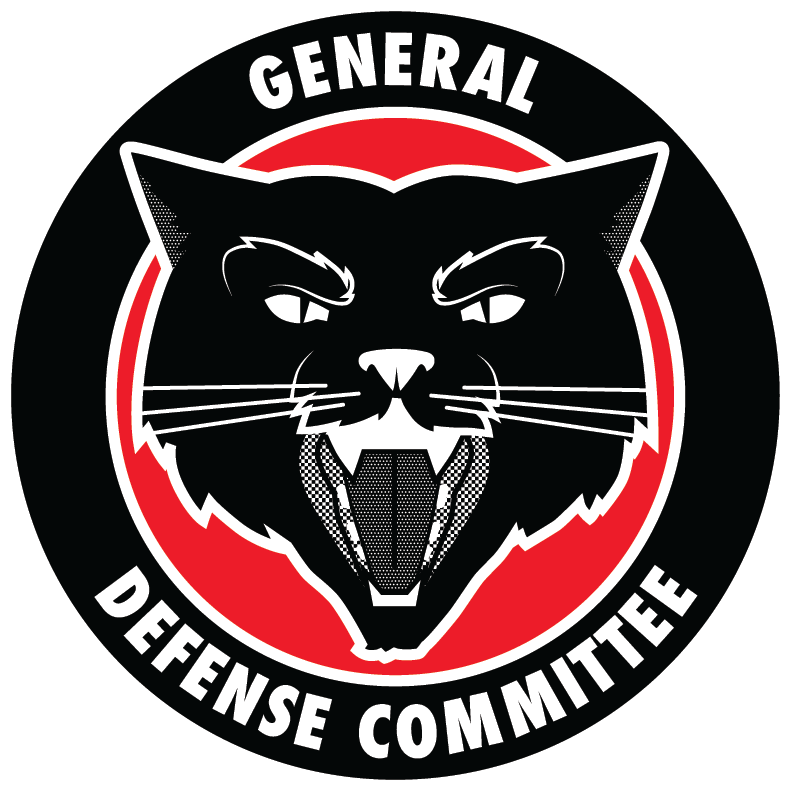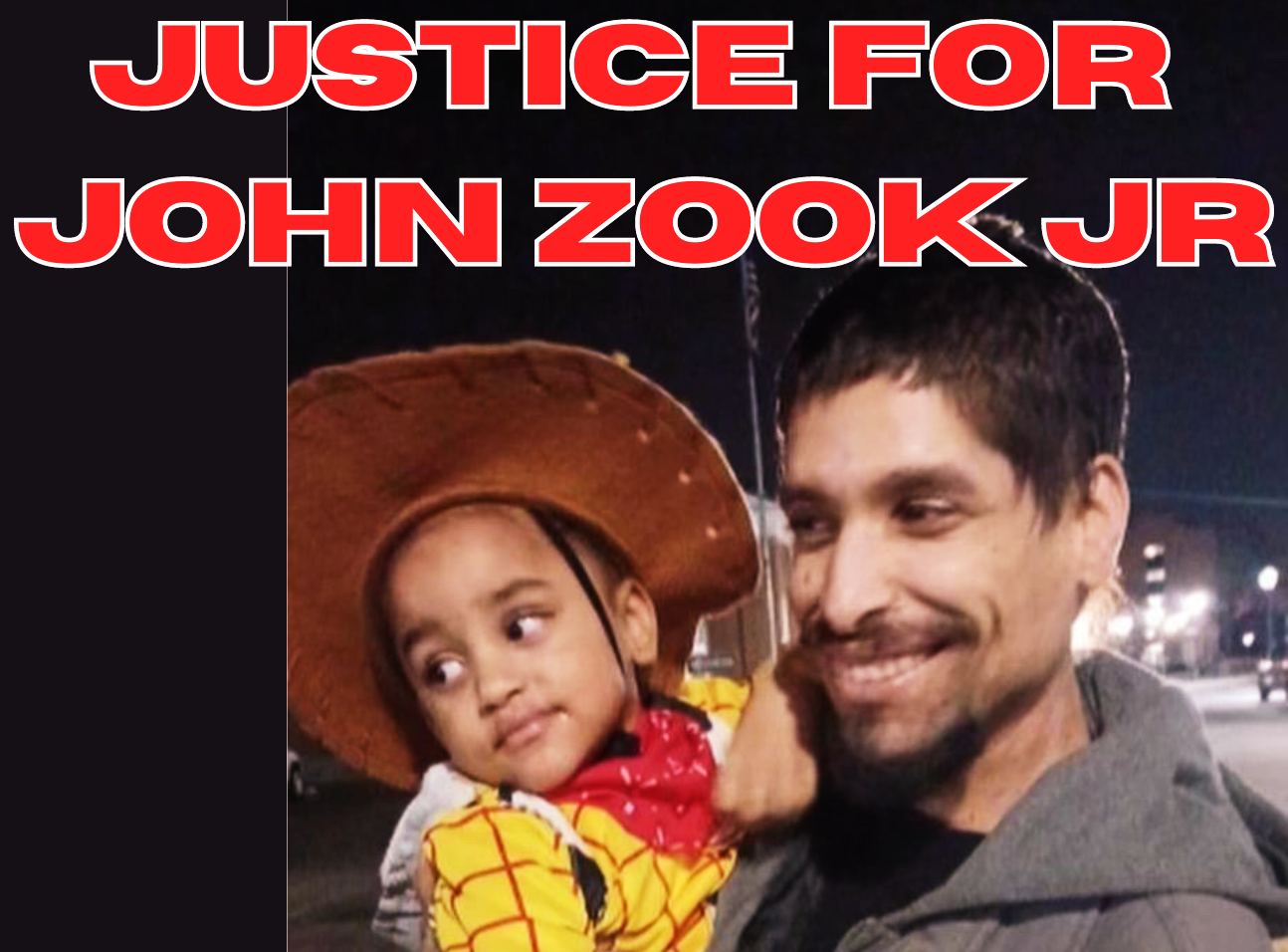772 people have been killed in the U.S by police so far this year alone. And those are only the people we know of.
16 people have been killed in Michigan by the police so far this year alone. And those are only the people we know of.
People in Newberry Square Apartments in Wayne might keep to themselves, unless you ask them about Johnny. Johnny was known by everyone in the apartment building. He loved to smoke with people outside on the concrete patio near the apartment’s doors and he could rap circles around his neighbors. He loved to talk to people and he would always say hi. His favorite color was green, like the forest, or grass, or like tennis balls. He loved tennis. He loved his neighbors, his family, his fiancee, his son. There are so many children in the apartment building, and Johnny was always with his 4 year old son Junior, in the hallways, outside, cared for, protected, loved. He was a stranger to no one, because no one was a stranger to him. He was a friend.
On June 18th, Johnny called for help. He reached out to those we’re told are here to protect and serve. He called the police.
Johnny struggled with his mental health, no doubt made worse by harassment from the police who treated the apartment building like a playground and the people in it like toys. But on that day in June, he needed someone. So he called them. Reading the way the police describe the event turns Johnny into a “subject” who charged at the police with a kitchen knife, “in which one officer responded by firing several shots, which stopped him at the time.”
Let’s paint this picture again. Johnny was in the apartment with his 4 year old son. He was experiencing a mental health crisis, something that he sometimes went through, but never turned on anyone else. He turned it inward. He had had cuts on his arms from a suicide attempt. He called the police because he did not want to die. He did not want to die. He wanted to live, for his child, for his fiancee, for himself. So he called the police. When he answered the door, he was shocked to see so many cops there. The cops tased him once. They tased him again. Then they shot him. They shot him once. They shot him twice. Three times. Four times. Five times. They shot him six times, with his son in the apartment with him, because, according to them, his kitchen knife was enough of an excuse to take his life.
A kitchen knife was enough of an excuse that within 2 minutes of Johnny opening his door, the cops took him away from his fiancee, his son, his family, his friends, his neighbors, forever. It took 2 minutes for the cops to do what they do, 2 minutes to murder Johnny, 2 minutes to carve an irreversible hole into every person whose life he’d ever touched.
A lot of the time people will point out the mass shooters, many who are white, who are brought in alive after they’ve killed people as a way to point out a double standard in policing– to point out where the police do choose to kill instead, like during evictions and mental health crises and when someone has stolen something and when someone’s back is turned to them and when a child has a toy gun or a bag of Skittles and when someone has done absolutely nothing at all. But the point isn’t to fight for more humane policing, or to draw a distinction between good people and people who are bad enough to deserve to be killed by police. Not to mention how many of us know someone rotting in prison, or have been in prison ourselves, and know firsthand how people shouldn’t be in there, how that’s not a better answer to harm or violence than being murdered by the police.
People also often point to the mental health of the cops involved, or the mental health of mass shooters, turning mental health into a scapegoat for actions that are actually white supremacist power-plays. In reality, we are all being driven mad by living in a society where we have to work to make our bosses rich until the day we die; where homelessness is criminalized but housing costs too much; where racism and war abound but you’re not allowed to talk about it; where mental health support and drug rehab centers get defunded but the police who harass you when you’re having a breakdown or are relapsing get more and more money any time they ask. We are all one public breakdown away from having the police called on us; but housing insecurity, racism and profiling, poverty, all worsen the chance of one of us being killed by the police.
What does it mean to be mentally well in a society like this? What does it mean to be a cop who upholds these laws criminalizing being unwell? What does it really mean to be able to kill community members with impunity?
The point is that the police are in our communities in order to keep doors closed, to protect empty buildings that could be used for housing, to segregate black from white and rich from poor, and to choke out rebellion when people are sick and tired of being sick and tired; police are in our communities in order to punish us when they’re bored, to steal and call it “paraphernalia” or “evidence,” to destroy and unravel communities, to disorganize the organized, and to sow fear and disunity in us all.
The point is that the police do all of this and get paid for it while cities and counties keep giving mental health programs, drug rehab programs, public education, libraries, and community the short end of the budget, or no budget at all. The police do all this and people keep them on speed-dial; to punish each other, to keep people away, to not take responsibility for each other, and, in the hardest of times, to ask for help when no one else is around.
The point is that when we don’t talk to people, when we keep to ourselves, we make room in our hearts for the very lesson that the police are trying to teach us, which is that we can’t rely on each other — only ourselves. But luckily, and despite what Cop City projects like the one in Atlanta or Camp Grayling in Michigan might suggest, the only options in this world aren’t to either be killed by the police or be disappeared into a prison to rot away until you die. We do still have each other. And “together” is another word for “power.”
The police and prisons are a symptom of capitalism, the biggest sickness in the entire world. Capitalism is the disease that requires wars and invasions, colonialism and imperialism. Capitalism funds terror, like what the Israeli Occupying Forces are doing to Palestinians in Palestine and what the cops do locally here. Capitalism requires that we hold each other not with closeness and openness, but with contempt and suspicion. Capitalism requires police and prisons in order to disappear people who are unwanted in “polite society.” And capitalism requires people to believe in police and prisons as the only answer in order to make them successful. And while prisons and police both need to be gone like yesterday, it is never ever enough to just treat the symptom of the sickness that is capitalism. In order to make sure no one is ever killed by police or slowly murdered by prisons again, we must all work together to develop the cure. It is up to us to do at least that much.
When we decide that other people are too much trouble, when we withhold our ability to help one another because it’s “not our business,” when we second-guess reaching out to someone else, when we don’t have faith in our ability to struggle together to fight for a better tomorrow, we’re also turning our backs on Johnny’s beautiful human spirit. We turn our backs on power, and worst of all, we’re turning our backs on each other. On loving one another, supporting one another, strengthening one another. When it’s clear that in this sick society we’re all we’ve got, we have a responsibility to persevere with each other to disrupt business as usual and create a new way of being.
We must also build strength and power with each other. Follow the General Defense Committee at @michigangdc on Instagram; come to our open hours; email us. Tell us about the things on your mind, the questions you have, the ideas you have. We want to meet you. We can tell you more about the fight for justice for Johnny in Wayne, or the fight to free Krystal Clark from Women’s Huron Valley prison, or our solidarity work with Cuba, or our work with other organizations fighting for a free Palestine, or our housing work and solidarity work with homeless community members and encampments. Let’s build together now for that better tomorrow.

